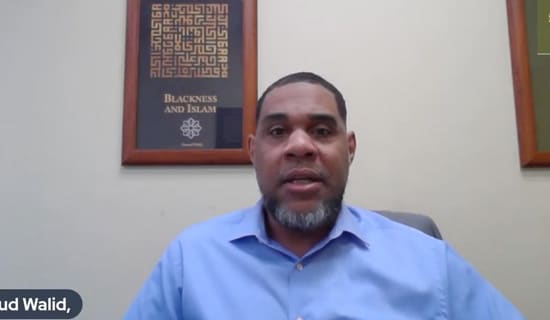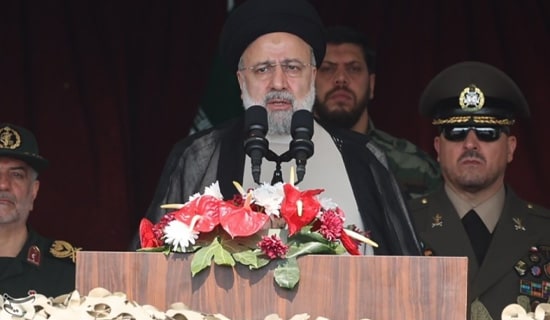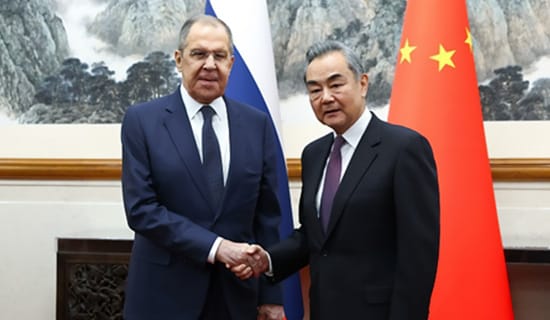Several articles and reports recently published in Egypt allege that the American intervention in Darfur is nothing but a plot to control the oil in Sudan and help President Bush in the upcoming elections. The following are excerpts from the articles:
Al-Ahram Al-Arabi Weekly: 'Sudan is the Key to the American Voting Booths'
The Egyptian government weekly magazine Al-Ahram Al-Arabi published an investigative report by Dr. Amani Al-Tawil titled: "The Key to the American Voting Booths is in Darfur: The Plot which is Called 'Oil.'"[i]
"The fast locomotive of the Western intervention, led by the U.S., is about to pull into the Darfur station in Sudan … where there is no separation between political and humanitarian issues. While the experts in Washington, London, and Khartoum are toying with the fate of more than a million Sudanese, displaced and scattered in the desert, the new amateur Sudanese politicians, the sons of Darfur, who visited the capitals of the world, have been intoxicated by the political and media glory and have lost their ability to present a coherent political agenda.
"The question is why did Colin Powell, the American Secretary of State, grab the ball from the U.N. Secretary General Kofi Annan's court in this race to Darfur and [why he] mobilized behind him the European Union in an attempt to score the 'goal' of imposing international sanctions on Sudan? Why didn't Washington give the agreement that was signed last April between the government of Khartoum and the U.N. a chance [that may have saved] more than a million Sudanese from the threats of death, hunger, drowning in the vast desert [sands] of Darfur or dying in the refugee camps in Chad?
"The answers are not far from the American voting booths, and as usual they are not far from the oil barrel. Bush is awaiting his fate in November, and the U.S. is planning to make Darfur an easy path towards its major plan to transport the [Persian] Gulf oil and the African oil to the shores of the Atlantic Ocean, so that Washington can meet its needs in the next decade…
"In the American election game the Democrats are trying to strip away from the American president the remaining 'fig leaf' that is covering [his policies] in the Middle East, and to expose him in front of the American electorate. The signing of a peace treaty in Southern Sudan [is meant to help Bush] after [his] drowning in the Iraqi swamps and failing with his Palestinian Road Map. The only outlet that Colin Powell could find from the pressure that the Democrats in Congress [have been applying] on Bush was Powell's statement that his country was seeking to impose sanctions on Sudan and that it accused [Sudan] of ethnic cleansing and genocide, even though Powell's position in early July was different, when he stated that the situation in Darfur did not reach the level of ethnic cleansing or genocide...
SUPPORT OUR WORK

"It is possible that Powell's withdrawal from his [earlier] political position, his lack of credibility, and his concern regarding Bush's election needs were the reasons for Egypt's intervention in Darfur's problem. Egypt insisted during the talks between President Husni Mubarak and the American Secretary of State, Colin Powell, that Darfur's problem should not be internationalized to a point that requires direct military intervention, as threatened by the British Prime Minister Tony Blair who said that he was ready to send 5000 troops to Darfur immediately.
"In its political position, Cairo maintains that the direct intervention in Iraq did not lead to true security and stability. To the contrary, [it] opened the door wide for the outbreak of a civil war. Also, Iraq turned into an arena of clashes between the remnants of Al-Qa'ida's army and numerous other cells and the American military machine. Furthermore, Cairo maintains that the situation in Sudan is delicate and threatens the stability of its neighbors in the region and puts Cairo and Tripoli in danger not only from the Sudanese gangs, but also from Al-Qa'ida cells that exist there…
"Also, the needs of the American industrial sector are not too far from the Darfur 'pie.' The fact is that the American delegation that accompanied Colin Powell included businessmen and representatives of the oil companies, despite the fact that the American administration declared that the reasons for the [American] intervention [in Darfur] are humanitarian, first and foremost…
"The goals of the American oil companies are two-fold: First, removing the South-East Asian oil cartels from Sudan, since the Sudanese oil production will reach half a million barrels per day at the beginning of next year. This, following the signing last week of an agreement between the Sudanese Office of Energy and Mines and Petrodar, the company which heads another oil cartel that includes 15 companies, most of them Chinese, Malaysian and European.
"Second, the American oil companies plan, after stability in Iraq is obtained, to extend the oil pipeline from the Arabian Gulf through the Saudi port of Yanbu' to the port city of 'Arous in Sudan, and [from there] through Darfur to Chad where it [will link to] the existing pipeline that begins in Daba oil fields in Chad and goes to the Atlantic Ocean, therefore securing an oil flow for American needs.
"The needs of the American industrial sector are not limited to [securing] a safe passage for the oil through Africa, but aims also at limiting the French presence in Africa. This, following America's success in removing France from the area of Al-Buheirat Al-'Uzma [the Great Lakes], it is now hoping to eliminate the French presence in Chad and Sudan, since France did not act as politically expected of her in the Darfur problem…"
Al-Ahram Weekly: 'An American Conspiracy to Control the Sudanese Oil'
An editorial in the Egyptian government English-language magazine Al-Ahram Weekly[2]:
"No observer could possibly deny that conditions in Darfur in western Sudan are sharply deteriorating. The war-stricken region is undeniably experiencing a humanitarian catastrophe, facilitated by the absence of an effective central government.
"Even more alarming, however, is the increasing discourse claiming that the Sudanese government is undertaking operations of ethnic cleansing against the inhabitants of Darfur, and especially against non-Arab tribes. Such claims are made despite the fact that there is no international investigative committee or an official United Nations report [claiming that such ethnic cleansing exists]...
"The decision of the United States Congress to impose sanctions will negatively impact the Sudanese people and can, therefore, only be seen as an act of collective punishment. The suspicion in the Arab world is that the U.S.' eagerness to intervene in Darfur is an American conspiracy to gain control of Sudanese oil."
Endnotes:
[1] Al-Ahram Al-Arabi (Egypt) July 31, 2004.
[2] Al-Ahram Weekly (Egypt) July 29, 2004.




